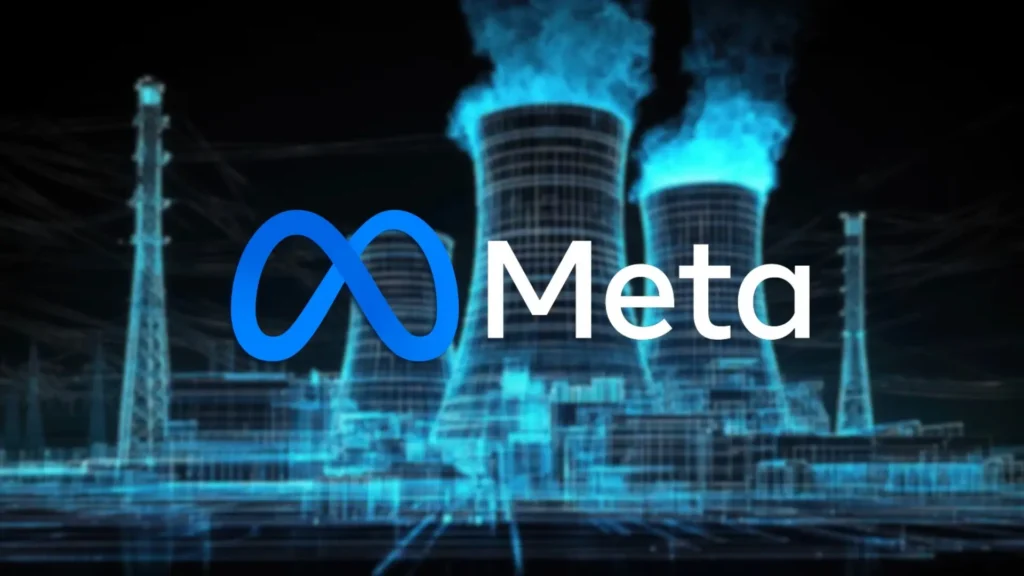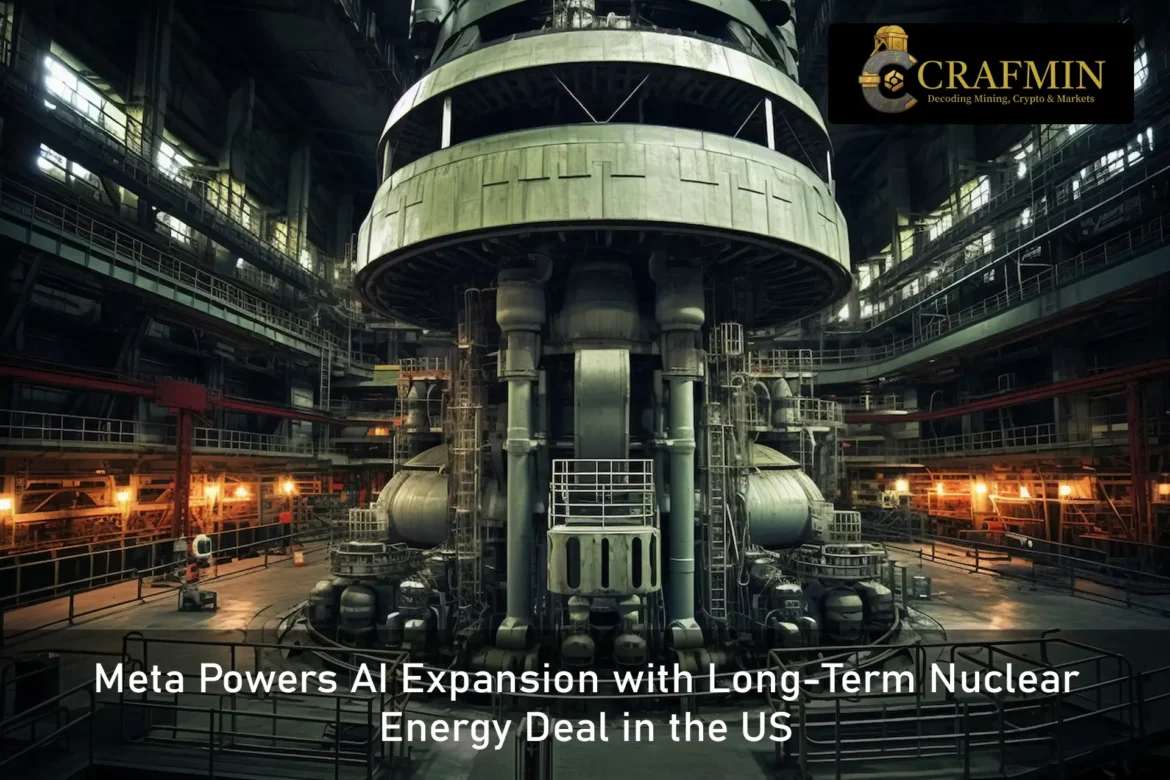Meta Secures Long-Term Nuclear Energy Supply for AI Growth
Meta, the parent company of social media platforms like Facebook and Instagram, has formed a 20-year partnership with Constellation Energy, one of the United States’ major energy providers. The arrangement aims to ensure a reliable source of clean energy for Meta’s rapidly expanding AI-driven operations. The agreement focuses on nuclear power, marking a significant step in Meta’s broader strategy to power its digital infrastructure with zero-emissions electricity.
The deal will see Meta draw energy from the Clinton Clean Energy Centre in Illinois, starting from 2027. This nuclear facility will provide more than 1,100 megawatts of electricity, with an additional 30 megawatts added to the grid through incremental upgrades. This clean energy supply will support Meta’s data centres in the region, which require large and consistent power loads to keep up with growing AI demands.
Meta’s data centres form the backbone of its technological innovation. These facilities store and manage vast amounts of information and enable the high-performance computing needed for AI development. As electricity consumption soars alongside AI capabilities, Meta is prioritising power sources that do not contribute to carbon emissions. Nuclear power, with its round-the-clock reliability and lack of greenhouse gases, fits squarely into this vision.

Image 1: Meta (Source: Neowin)
A Boost for Clean Energy and the Local Economy
The Clinton Clean Energy Centre had previously faced the threat of closure, primarily due to financial losses. Although it has been one of the state’s most efficient nuclear sites, it struggled to remain profitable until legislative assistance in 2017 kept it afloat. That support is due to expire in mid-2027. With the newly announced partnership, Meta will play a direct role in keeping the plant running beyond that point — without needing ongoing government subsidies.
This long-term agreement has more than just environmental benefits. According to Constellation Energy, the Clinton facility sustains over 1,100 jobs in the local area and contributes approximately $13.5 million annually in local tax revenue. By stepping in with this commercial deal, Meta ensures not only the plant’s operation but also economic stability for the surrounding communities.
Constellation’s Chief Executive Officer, Joseph Dominguez, has highlighted the importance of corporate investment in keeping existing nuclear plants open. He notes that continued operation of older facilities is essential for maintaining grid stability, particularly as the demand for clean energy continues to rise. Shutting down such facilities, he adds, would set back environmental goals and put unnecessary pressure on the energy system.
Nuclear energy is viewed by Meta as a core part of its long-term energy plan. Unlike solar or wind, which depend on weather and daylight, nuclear plants operate continuously. This makes them ideal for high-tech infrastructure, where constant electricity supply is essential. Meta is already matching its electricity use with renewable and emissions-free sources, and this agreement reinforces that effort.

Image 2: Meta (Source: Unsplash)
Expanding Nuclear Capacity for the Future
In addition to the Clinton project, Meta is pursuing new nuclear initiatives through a separate program aimed at identifying future power plant developments. The company launched a Request for Proposals (RFP) earlier this year, inviting energy providers and developers to submit ideas for new nuclear projects. The response was strong, with over 50 qualified submissions received from across more than 20 states.
Read Also: “Minds at Risk”: Mental Health Misinformation TikTok Can’t Stop Spreading
Meta has now narrowed these proposals down to a shortlist of candidates that are being assessed for feasibility, location, and technology. The selected projects represent the most practical opportunities for quickly advancing nuclear energy development. Through this program, Meta is aiming to secure between one and four gigawatts of new nuclear capacity to support its next generation of data infrastructure.
The company’s clean energy lead, Urvi Parekh, has noted that Meta sees nuclear as vital for meeting future AI needs. She says the company is committed to playing an active role in developing the infrastructure required for this transition. Meta intends to finalise the current round of project selections within the year.

